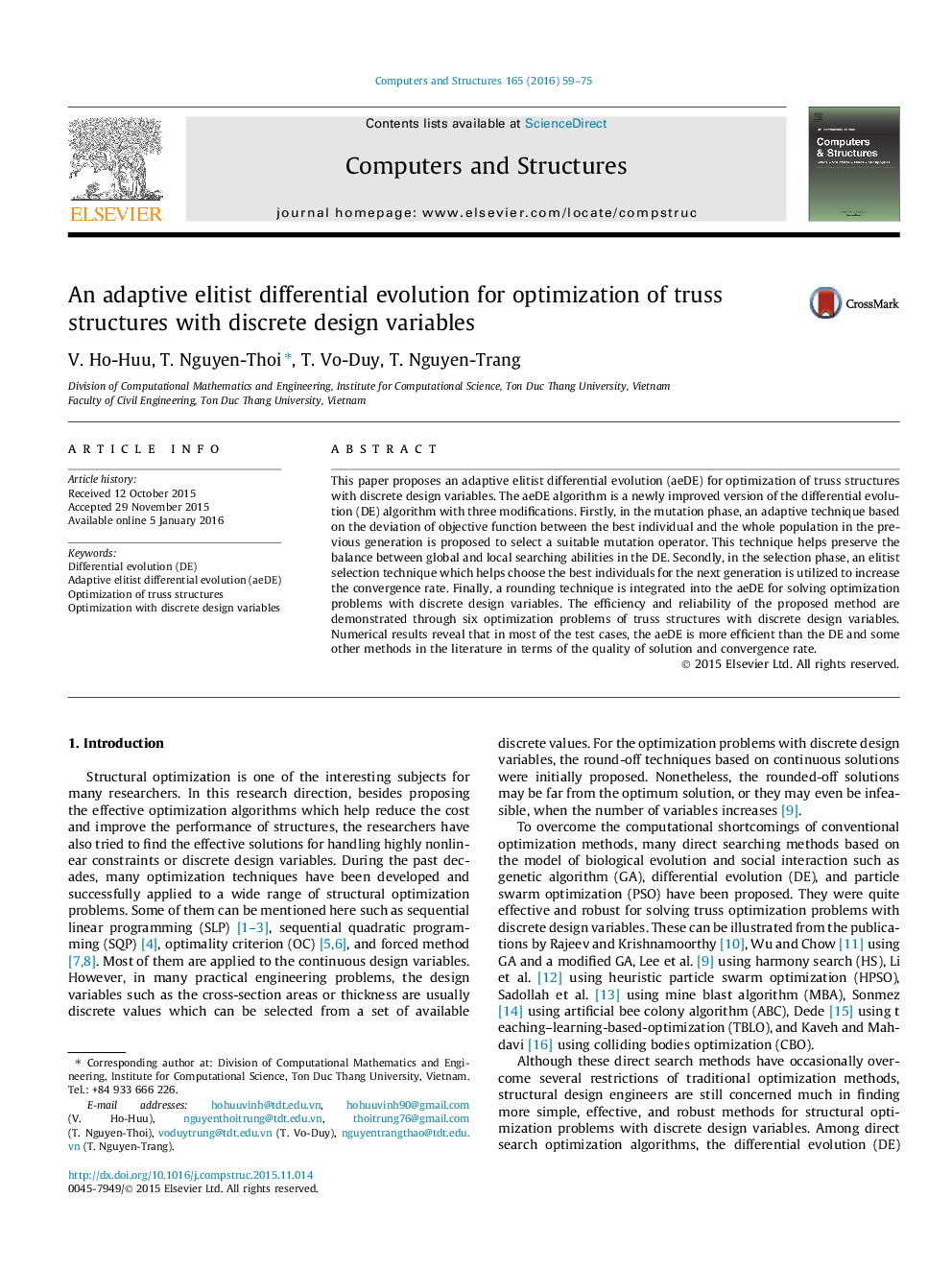| Article ID | Journal | Published Year | Pages | File Type |
|---|---|---|---|---|
| 510243 | Computers & Structures | 2016 | 17 Pages |
•An aeDE is proposed for optimization of truss structures with discrete design variables.•The aeDE algorithm is a newly improved adaptive version of DE with three modifications.•Three improvements relate to the mutation phase, selection phase and rounding technique.•The numerical results for six benchmark problems illustrate the effectiveness of aeDE.
This paper proposes an adaptive elitist differential evolution (aeDE) for optimization of truss structures with discrete design variables. The aeDE algorithm is a newly improved version of the differential evolution (DE) algorithm with three modifications. Firstly, in the mutation phase, an adaptive technique based on the deviation of objective function between the best individual and the whole population in the previous generation is proposed to select a suitable mutation operator. This technique helps preserve the balance between global and local searching abilities in the DE. Secondly, in the selection phase, an elitist selection technique which helps choose the best individuals for the next generation is utilized to increase the convergence rate. Finally, a rounding technique is integrated into the aeDE for solving optimization problems with discrete design variables. The efficiency and reliability of the proposed method are demonstrated through six optimization problems of truss structures with discrete design variables. Numerical results reveal that in most of the test cases, the aeDE is more efficient than the DE and some other methods in the literature in terms of the quality of solution and convergence rate.
